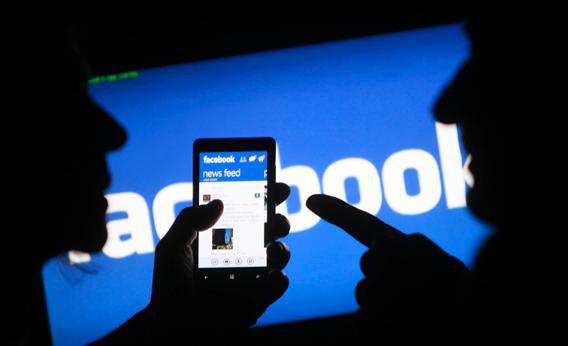I’ve been thinking a lot about privacy lately. Who hasn’t? What it is, when we are entitled to it, whether it is extricable from autonomy, whether it is overrated—the National Security Agency data-mining scandal last week hauled all these issues to the fore. But even before PRISM, our social-media-drenched world has forced us to consider anew the value, scope, and purpose of privacy. Is it appropriate for journalists to publish roundups of stupid tweets? For potential employers to scour your Tumblr? Can I noncreepily allude to an Instagram picture an acquaintance uploaded when we run into each other at CVS?
The latest blurry line: Last week, a Pennsylvania woman grew tired of listening to a man on her train boast about his extramarital sex conquests. So she posted a picture of the guy to Facebook, along with the following note: “If this is your husband, I have endured a 2 hour train ride from Philadelphia listening to this loser and his friends brag about their multiple affairs and how their wives are too stupid to catch on. Oh please repost…”
The Internet obliged, at least 183,000 times. So far the man hasn’t come forward, though the vigilante presented her side of the story to Salon on Saturday: “I just thought he was such a pig.” Readers and bloggers seemed to agree, and the idea that she had violated this guy’s privacy hasn’t found a lot of traction. Which makes sense: In trumpeting his supposed infidelities to a carload of commuters—not exactly cloak-and-dagger—he made them public property. He became fair game.
Except that privacy is about more than the immediate what and where of surveillance. It is also about what happens to the data after it is swept up. Do a few people see it? Does your employer? Does the entire Internet? According to my sliding-scale definition of privacy (copyright 2013!), a guy being a jerk in front of 10 or so strangers in a train compartment justly opens himself up to about 10 strangers’ worth of ridicule. Is it fair to subject him to orders of magnitude more than that?
As Anna North observes, social media now allows us to police one another’s behavior to an unprecedented degree. The way it does this is not necessarily by prying into the most intimate details of our lives—though it can—but by expanding the audience for our everyday behavior. We act differently when someone is watching; we act really differently when 183,000 people are watching. What happens when you try to develop an authentic self under the weight of all those eyes, in the grip of all that pressure?
Of course, maybe privacy is not the answer to social policing at all. Maybe more people observing means more voices in the mix and, ultimately, more flexible norms.
But maybe it means something else. What if, instead of forcing us to, say, not cheat, the heightened visibility created by Facebook and Twitter just pushes our wrongdoing deeper underground? What if we start believing—as Kat Stoeffel suggested Monday—that only observed transgressions count? We’d keep conducting our affair with the neighbor, but more quietly. Make the costs of getting caught screwing up spectacularly high, and it’s only natural that people might focus more on not getting caught.
I do not want to live in a world where men cheerfully betray their spouses. But I also would prefer not to live in a world in which we’ve all become our perfectly manicured Facebook profiles. We walk a fine line with social policing (as with regular policing) between reducing actual bad behavior and just forcing it into the shadows. No, I don’t know how to negotiate that tightrope. Do you?
